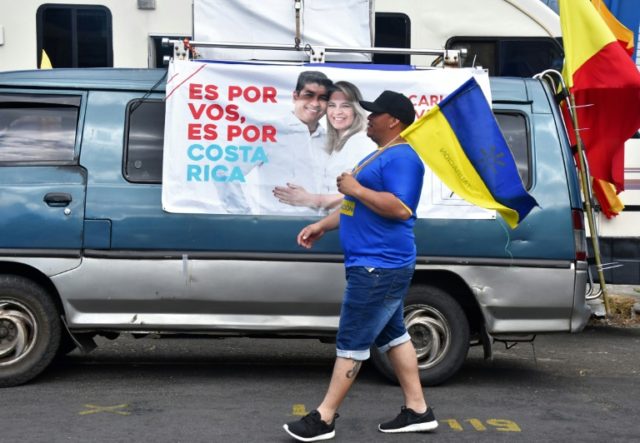San José (AFP) – Costa Rica was poised to discover who its next president will be after voting Sunday in an election that promised to be a close-run affair between an ultra-conservative evangelical preacher and an ex-minister from the ruling center-left party.
The result will determine who rules the small Central American nation of five million people for the next four years.
Pre-vote surveys suggested a neck-and-neck race between Fabricio Alvarado, a right-wing 43-year-old preacher, journalist and singer, and Carlos Alvarado (no relation), a 38-year-old former journalist who was labor minister in the outgoing government.
Fabricio Alvarado had surged from nowhere in the first round of the election held in February, prevailing in a field of 13 candidates by fiercely criticizing gay marriage.
Supporters embraced his promise to clean up politics after an abuse-of-office scandal marred the record of the administration of outgoing President Luis Guillermo Solis.
But detractors worried he would set back Costa Rica’s record on human rights and tolerance if he won.
– A ‘photo finish’? –
Carlos Alvarado ran on a broad campaign to address the priorities identified by his Citizens’ Action Party, which has been in power since 2014 under outgoing Solis, who was constitutionally barred from seeking a second term.
Those issues include reining in a steadily climbing deficit, boosting education and upholding ecological standards.
In the first round, the preacher won 25 percent of the ballots against 22 percent for the former labor minister — both well short of the 40 percent required to avoid a run-off.
The last pre-election survey in March suggested Sunday’s run-off would be very tight: Fabricio Alvarado was credited with 43 percent support against 42 percent for Carlos Alvarado.
As he voted in the capital San Jose, Fabricio Alvarado was greeted with cheering supporters.
“We have reports of a big turnout. We are hoping for an overwhelming result in our favor,” he said.
A woman nearby yelled: “Glory to God, Fabricio, my president.”
But a small group of women dressed in replica costumes from the US TV series “The Handmaid’s Tale,” about a dystopian future in which women are oppressed, turned up to protest against him.
“We are together in protesting against fundamentalism,” said one of them, Gabriela Clark.
As he voted elsewhere in the city, Carlos Alvarado called the election “a beautiful moment.”
Yet observers were unsure which way the result would swing.
“The population still isn’t clear on what development model it wants,” Gustavo Araya, a political analyst from the Latin American Social Sciences Institute, told AFP.
“This is a photo finish. It isn’t statistically clear who will be the victor between these opposing platforms,” he said.
– Easter Sunday voting –
Some 3.3 million voters were called on to decide the election.
Electoral authorities reported no problems, and fine, sunny weather prevailed throughout the day.
Polling was taking place on Easter Sunday, at the end of a four-day holiday weekend. Roads into the capital were choked as many voters drove back home to cast their ballots.
Solis tried to bridge the divide exposed by the election campaign.
“I am calling, with all respect, for an end to the hateful displays we’ve been seeing on social networks,” he said as he voted.
“Once this is over we have to shake hands,” he said.

COMMENTS
Please let us know if you're having issues with commenting.